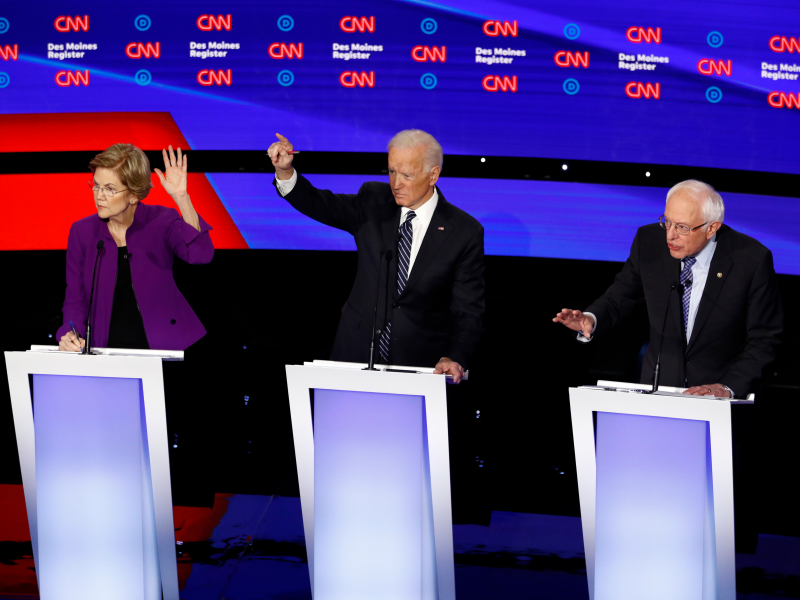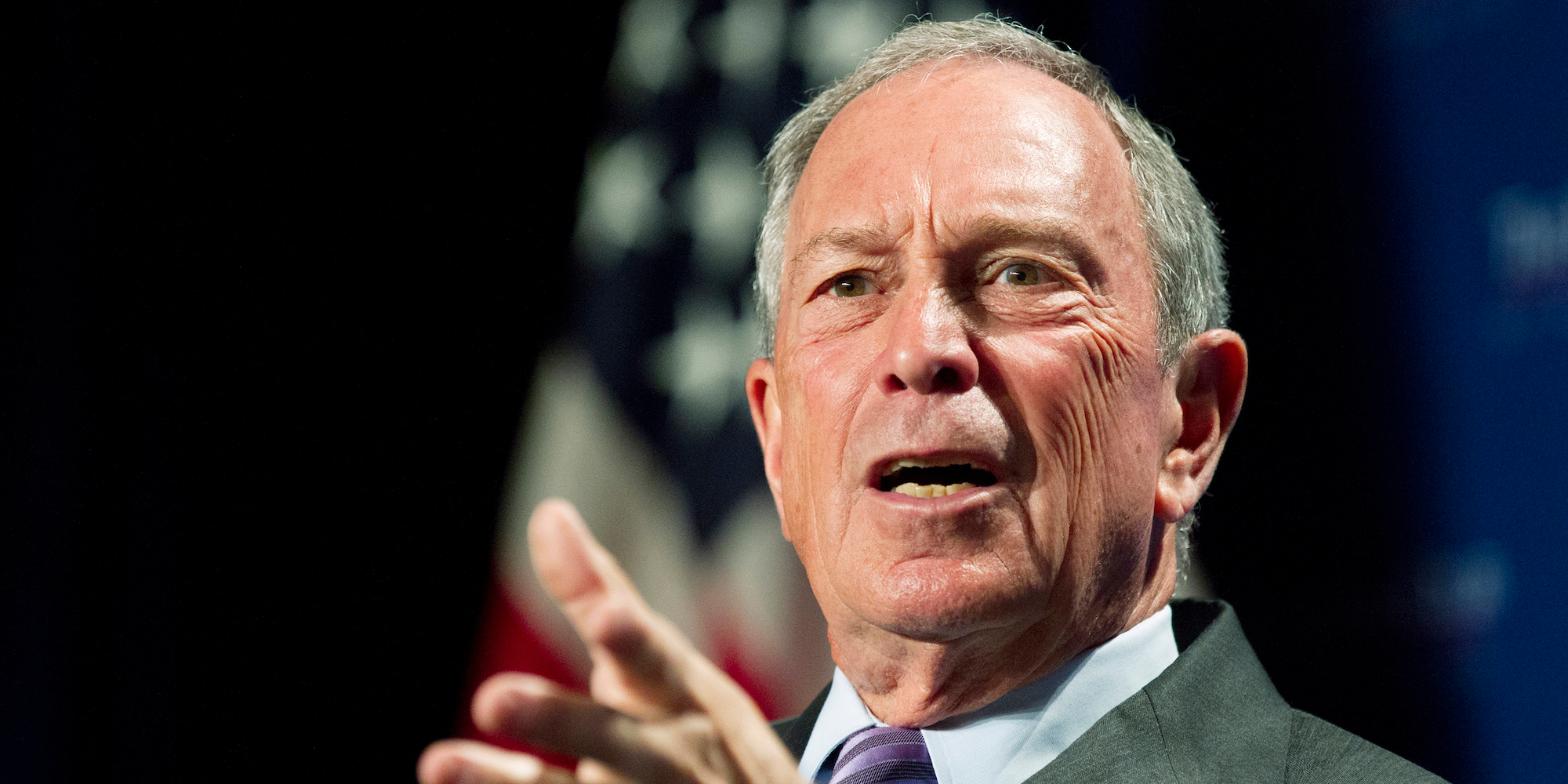- The billionaire Mike Bloomberg on Wednesday night is set to take to the Democratic primary debate stage for the first time.
- He is surging in national polls after pouring $400 million of his own money into thousands of ads and an extensive network of campaign operatives.
- Rivals pitching themselves as moderates will most likely home in on controversial statements from Bloomberg’s past.
- Bloomberg is a seasoned political debater, and he will be looking to capitalize on his momentum and establish himself as a frontrunner alongside Sen. Bernie Sanders of Vermont.
- Visit Business Insider’s homepage for more stories.
The billionaire Mike Bloomberg on Wednesday night is set to take part in his first Democratic presidential debate.
Once onstage, he is sure to find himself the main target of rivals seeking the support of moderate Democrats.
The former New York City mayor has surged in national polls, earning himself a spot on the Las Vegas stage at the last minute despite not even being on the ballot in Saturday’s Nevada caucuses.
The surge has been powered by a $400 million spending spree of his own cash on ads promoting his candidacy and attacking President Donald Trump.
He's also put in place an extensive network of campaign officials to rapidly develop his operation on the ground.
Despite entering the race as long as a year after some of his rivals, Bloomberg placed second in an NPR/PBS NewsHour/Marist poll released Tuesday, winning support from 19% of voters and coming in behind only Sen. Bernie Sanders of Vermont.
For rivals on the moderate wing of the Democratic Party the remaining debates may be their best - and perhaps only - chance of halting his momentum before the slew of state elections on March 3, known as Super Tuesday.

They will most likely be energized by the fact that the debate stage is a level playing field, where Bloomberg's vast fortune confers him no advantage.
As his candidacy builds, controversial statements from the business magnate's long career are attracting new attention, including his remarks on stop-and-frisk policies, transgender rights, and women.
They would be an obvious weak spot for his rivals to zero in on as they seek to portray themselves as best-placed to unite the party to defeat Trump.
Bloomberg has struggled under even elementary interrogation from reporters. Rivals are surely hoping that further cracks will show under sustained pressure in front of a live TV audience.
But one of his rivals would have to land a knockout blow to undermine Bloomberg - some kind of spontaneous moment of weakness that could be repackaged in attack videos and drive a damaging anti-Bloomberg news cycle.
If they do not, Bloomberg, who is said to have prepared extensively for his first appearance on the debate stage, could turn being the focus of attention, however hostile, to his advantage.
Bloomberg is a seasoned politician and is no stranger to the debate stage.
Having reviewed the mayoral debates from Bloomberg's three terms as mayor in New York (2001, 2005, and 2009), David von Drehle of The Washington Post concluded that Bloomberg probably fancied his chances against his rivals, who've so far not shown the rhetorical gifts that might turn the Democratic debates into must-watch political spectacles.
"Bloomberg's style projects the brusque self-confidence and worldly competence of a self-made mega-billionaire. He's not a pleaser - he has that in common with both Sanders and Trump," von Drehle wrote.
He also has the funds to spend big on ads, which could limit any damage done to him in the debates and spin the events to his advantage.
Axios reported that Bloomberg's campaign had already earmarked an astonishing $1.5 billion to buy ads in response to the debate.
Officials on the Bloomberg campaign are taking an aggressive, even taunting, stance by warning other moderates that they need to drop out fast and fall in behind him to prevent Sanders from becoming the nominee. The latest polls show Sanders with a plurality of support but the moderates combining for a majority.
If Bloomberg weathers the storm and cements his image as the candidate tough, rich, and ruthless enough to take down Trump in November, it could pay off big time in the delegate-rich Super Tuesday elections and leave other moderates with little to show for their months of effort while Bloomberg wasn't even in the race.

